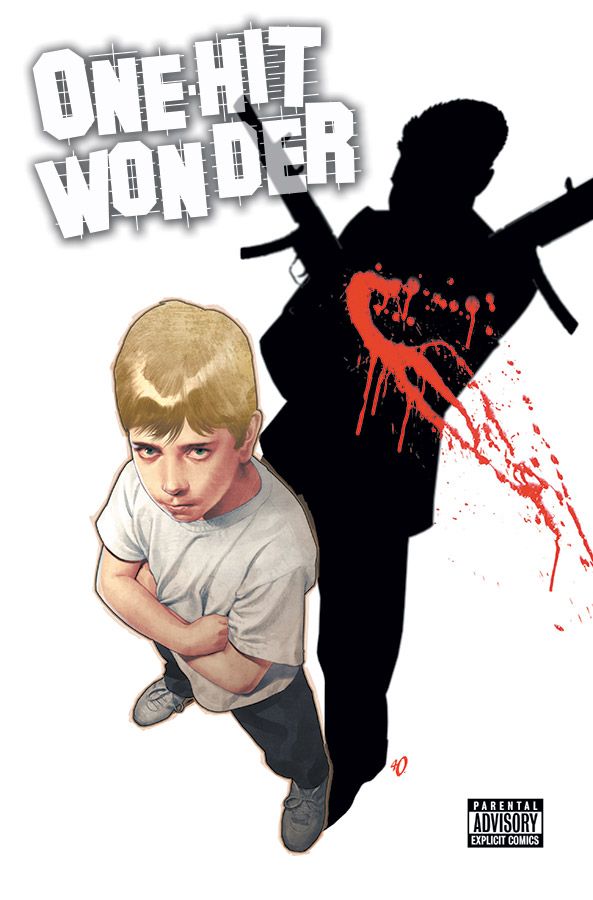Fabrice Sapolsky and Ariel Olivetti's "One-Hit Wonder" #2 is a strange comic, one that I hoped would resolve some slight issues I had with the first comic. As the book follows Richie Reese, a former child star who is now a contract killer, the tone on how the book treats Richie keeps shifting back and forth. As a result, here's the big question: are readers supposed to like Richie or not?
I have no problem with a book where you're supposed to hate the protagonist, so long as the story is engaging enough that it keeps you hooked, trying to find out what he'll do next. And likewise, a book where the protagonist is a villain but immensely likable is also fine; there's a lot of mileage in that sort of story. But in "One-Hit Wonder" #2, the tone is all over the place. One early scene has a funny internal monologue as teenage Richie runs down all of his competition for a role and why they won't make it; it's sharp and biting but there's a good sense of humor in Sapolsky's dialogue. And then, after he doesn't get the role, the next scene involves Richie helping an old woman's cat out of a tree, followed by Richie strangling it and giving the corpse back to the owner. All the humor is instantly drained from the book, and it makes you feel a little dirty that just two pages earlier you were cheering the character on. And unfortunately, that back and forth nature continues throughout the entire comic.
It's ultimately a little frustrating, because I think if Sapolsky stuck firmly on one side of the fence the book would work a little better. If nothing else, you could get a stronger sense of what sort of story "One-Hit Wonder" is trying to tell, and if it's your cup of tea. Instead, it's two conflicting stories jammed together.
Olivetti's art is great here, that slick, realistic, polished style that he's come very well known for. That cocky grin on Richie's face sells a lot of those scenes as an adult where you aren't sure how you're supposed to treat him; this is someone who looks like the very model of a former child star. And when things get tough, like the, "I think you like pizza!" scene, Olivetti draws it in an unflinching manner. Hopefully the book won't suffer from his absence when artist Stephen Thompson takes over starting with "One-Hit Wonder" #3.
Right now, the one amount of consistent storytelling is Olivetti's art, so with that having come to an end, I'm not sure how to feel about "One-Hit Wonder." Maybe things will finally gel with the third issue, and Sapolsky's story will pick one direction and stick with it. If so, this comic could really work. Right now, it's close -- but not quite there.

